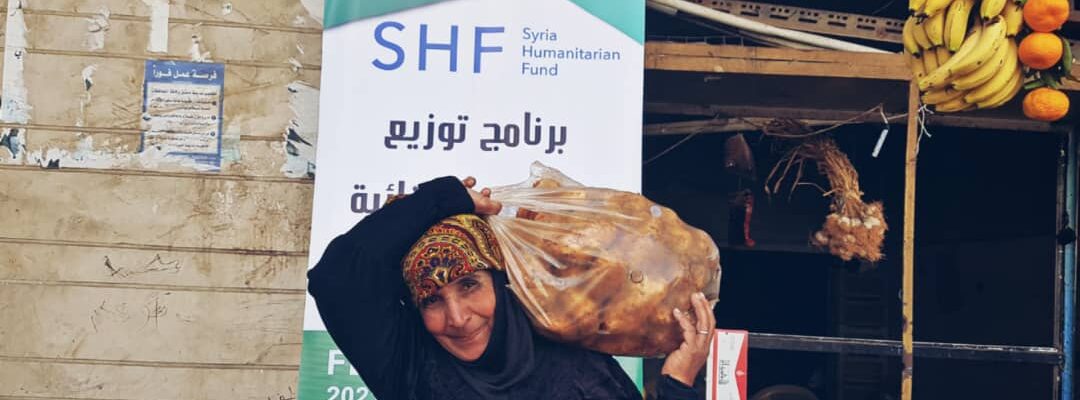Food and livelihoods help for vulnerable families
Syria | 2021 | CBPF
Syria, Homs. “Our difficult situation makes me sad and frustrated, but I try to stay strong for my grandchildren,” says Inas (not her real name), a 56-year-old woman from Syria and breadwinner for her family since her husband’s death. Inas’ family includes her two daughters and three grandchildren, the children of Inas’ son, who has been missing for nine years.
“Despite my old age, I do any work I can find to secure the necessities of life,” Inas continues. “I cut vegetables and sell them to the neighbors. My daughters and I work for daily wages picking olives and tomatoes. Sometimes, my daughters and I sleep with no food so that the kids can eat.”
The conflict and prolonged crisis in Syria and the COVID-19 pandemic have heavily affected thousands of vulnerable families. In 2022, nearly 14 million people, or 64 per cent of the people, will be food insecure.
In this difficult environment, humanitarian partners provide life-saving and sustainable assistance to strengthen community resilience.
The Food and Livelihood Assistance for Syrian Households, or FLASH, project, supported by the Syria Humanitarian Fund (SHF) in cooperation with the Adventist Development and Relief Agency (ADRA), an international NGO, provides monthly food vouchers equivalent to US$64 to vulnerable households for six months.
This support is vital for Inas’ family, and others like hers. The project reached 658 families, or 3,290 people, of whom 85 per cent were women and 15 per cent were living with disability. An additional 75 families received agriculture and livestock-based livelihood assistance.
“When I received the voucher, I was so happy that I cried because now I can get a break from spending all our money on food, can be relieved from some of our accumulated debt, and maybe even save some money. The voucher provides healthy food for my grandchildren. We can even buy things we haven’t eaten [in a long time] such as legumes, halawa, and cheese.”
The project focused on families in the Telbisa area of Homs Governorate, which was heavily damaged by the conflict, including damage to basic infrastructure, housing and farming land.
People have been slowly returning to the area since it became accessible to humanitarian organizations in 2018. Though it is an agricultural area, food insecurity is high, mostly because of limited livelihood opportunities and widespread poverty, with high levels of disability. Approximately 72 per cent of people surveyed in September 2020 (ADRA Syria, baseline assessment), reported that there were months they did not have enough food to meet their family needs.
“Now, I no longer need to borrow money, and my grandchildren are happy that they can have delicious and healthy food at the same time,” said Inas.
More information on the Syria Cross-border Humanitarian Fund
OCHA – POOLED FUNDS DATA HUB – By Country (unocha.org)
https://www.unocha.org/syrian-arab-republic/syria-cross-border-humanitarian-fund
